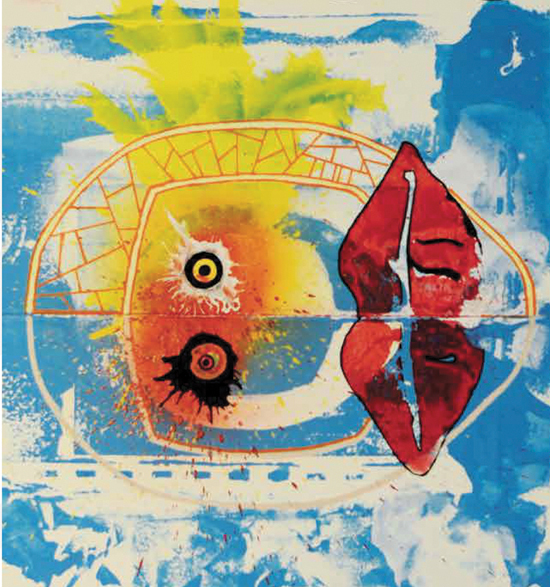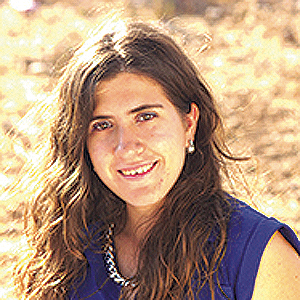For the last few months, on the first Saturday of every month, at around 7:30 pm, the lights in the attic of Ramallah’s Khalil Al-Sakakini Center have been dimmed, frenzied movement has calmed down, and the usual buzz above Mahmoud Darwish’s former office has gradually turned to warm welcome when words with an attitude are lined up as poems that are performed, unapologetically, for an hour and a half.
These poetry sessions are held by the Sard (Arabic for narrative) youth collective and create a platform for the performance and sharing of spoken-word poetry. This type of poetry is well established around the world but little-known in Palestine. Meant to be performed without a text in hand, it is intended for the stage rather than the page. Body language, eye contact, and the use of voice accompany these words; the practice encompasses wordplay and repetition and pays special attention to rhyme in the narration of personal stories. Theater, dance, music, and storytelling can be used alongside the poem to become integral parts of the overall work. Spoken-word poetry emerged in the United States in the late 1970s and mid-1980s, and for a long time it was associated with oral traditions and the rise of hip-hop, jazz poetry, and rap as forms of art that convey strong social and cultural messages. The form has become internationally known and appreciated.

In Palestine most literary forms started orally, be it in classic recitation of Arabic verse known as suok okath style performance, zajal, and ataba (poetry duels and sung verse), or in our most renowned art: haki (storytelling), which was performed by our mothers and grandmothers, who, on long winter evenings, told stories to families gathered around a qanoun (traditional small wood stove), and by the professional hakawatis (storytellers) who spun tales around old classics as they moved from town to town. Unlike haki or zajal, spoken word is consciously written first then performed – there is usually little space for improvisation. But like the poetry of our other traditions, written or spoken, it is becoming entrenched in our culture.
To the inexperienced ear, the term spoken word sounds soft; to others it implies anger and a fierce attitude. The writing is frequently conducted bilingually and mostly free from strict poetic form; its style, language, metaphors, and rhymes are left to the poet’s discretion. Some choose to rhyme, some mix languages, others rely on beats similar to rap or even include beat-boxing. These elements together make this practice of poetry a contemporary take on old styles of recitation that leaves room for experimentation with story and themes, and allows for ample space to voice worries, express pain, or relate day-to-day matters. It is remarkably noticeable that the issues addressed are largely personal and social, and human struggles paint the words. The verse is very sharp, yet the delivery is softer than with rap, but driven over with the same punch.
Spoken-word poetry with its many facets took hold in Palestine in late winter of 2010. During and after the Palfest sessions held at Birzeit University, New York-based poet Remi Kanazi teamed up with the Palestine Writing Workshop (a local Birzeit-based NGO that works on literary culture in Palestine) to teach a spoken-word poetry workshop, the first of its kind in Palestine. I was one of the participating students, and the sessions significantly opened my eyes to poetry and performance. Palestinian institutions do not offer any formal or near-formal teaching of creative writing, and students, young writers, and poets have to find their way on their own, assisted only by inborn language skills, lucky encounters, and the encouragement of family and friends. The workshop was well attended and culminated in a poetry night in late spring of 2010.
♦ Spoken words have a long tradition in Palestine. Zajal is a traditional form of improvised popular poetry that is common in northern Africa and the Levant region and practiced in Palestine until today, mainly in the north. Its origins likely date back to the twelfth century, and it may have been brought by Arabs fleeing from the Andalus (Spain) around the thirteenth century. Zajal is recited at social occasions, such as weddings, and at times performed as a friendly duel between two zajjaleen. It is based partly on improvisation, partly on memorization of repeated formulas, and the recitation is semi-sung. The improvised strophes alternate with verses that are performed by a chorus of men, recently also women, and accompanied by percussion instruments and possibly a nay (the Arabic flute) or mizmar, yarghool and mijwez (types of reed instruments, the latter two with a second pipe for a drone, performed with a continuous tone, as performers gather air in their cheeks by which they produce tone while inhaling through the nose). The atmosphere of these performances is joyful, at times tongue-in-cheek; they may contain commentary on social or political issues or merely serve to entertain, praising grooms and brides and their families.
Palestinian-born artists in the diaspora have been inspiring examples for young Palestinian poets who resort to writing poetry as a means to restore their spirits and faith within a situation that is marked by the struggle for basic rights. Diaspora-based artists such as Suheir Hammad, Remi Kanazi, Rafif Zeyadeh, and others paved the way and encouraged youth to entrust their fears, dreams, and frustrations to a language that transcends walls, words, and politics, yet conveys a hopeful message.
Familiar faces gather at Sakakini on the poetic Saturdays as the Sard collective provides a safe space for aspiring youth, and a community of support is growing. While spoken-word poetry is still mostly centered in Ramallah, it will spread just like the hakawatis did. Young Palestinian spoken-word poets maintain our narrative and nurture the attitude of resilience with their sharp pencils and sharper verse, hoping to reach global platforms with their words.
» Alice S. Yousef is a Palestinian translator, blogger, and emerging poet, who has published short stories and translations. She holds an MA in writing from the University of Warwick (United Kingdom) and has recently been a fellow at the University of Iowa’s International Writing Program (United States). She tweets @Aliceyousef.


